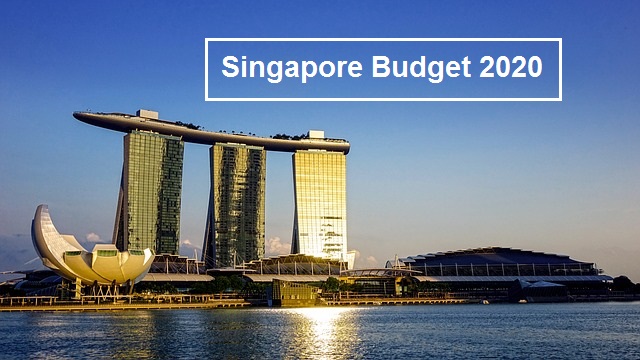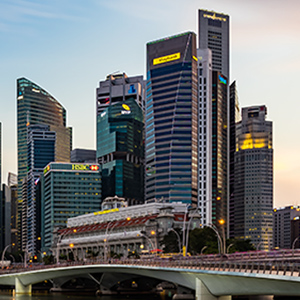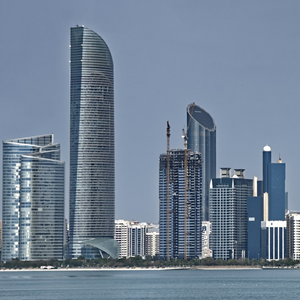

The Singapore Ministry of Finance (MOF) released its Budget for 2020 on 18 February 2020.
This year’s budget focuses mostly on allocating resources into helping businesses and industries overcome the recent economic challenges.
Singapore’s economy grew by a modest 0.7% in 2019, its weakest growth since the financial crisis of 2008.
Just prior to the possibility of a global economy recovery, the COVID-19 outbreak hit unexpectedly and, in response, many of the initiatives announced in this year’s Budget aim to protect the jobs of local workers, followed by helping enterprises with cashflow to face the tough recent events.
The Government has set up a S$4 billion Stabilisation and Support Package that will help implement a wide range of measures.
Here’s what businesses in Singapore can take away from the presentation of Budget 2020.
- Covering Wage Costs for Employers
A new Jobs Support Scheme will be introduced to subsidise the wages of local workers. According to this scheme, employers will receive an 8% cash grant of each employee’s monthly salary, up to a monthly cap of S$3,600, for three months. This applies to employees who are Singaporeans or Permanent Residents. This amounts to a S$1.3 billion payout in total, which employers will receive by 31 July 2020.
An existing Wage Credit Scheme will also receive a S$1.1 billion enhancement to support salary increases for local workers. The scheme will now co-fund 20% of wage increases in 2019, and 15% of wage increases in 2020, for Singaporean employees earning a gross monthly income of up to S$5,000.
- Corporate Tax Rebates and Working Capital Loans
All tax-paying companies will be given a 25% corporate income tax rebate for the year of assessment 2020 capped at S$15,000 per company.
Businesses can also expect enhanced tax treatments for one year, including faster write-down of investments in plants, machinery, renovation and refurbishment incurred for the year of assessment 2021.
To give businesses easier access to working capital, the Enterprise Financing Scheme’s Working Capital Loan will double its maximum loan amount to S$600,000. The Government will take on 80% of the risk of the loan, increased from the current 50% to 70%.
Additionally, tenants and lessees of government-managed properties can request for more flexible rental payments like instalment plans, to be approved on a case-by-case basis.
Budget 2020 identifies tourism, aviation, retail, food services and point-to-point land transport and/or supply chain services as sectors most directly affected by the COVID-19 outbreak. These sectors will receive additional help besides of the measures mentioned above such as an extended funding period for re-skilling workers, increased from three months to a maximum of six months.
- S$300 million Set Aside for Technology Start-ups
According to the “Global Startup Ecosystem Report”, Singapore’s start-up environment is ranked in the top 15 worldwide. There are about 3,800 technology start-ups in Singapore, with about 150 venture capital funds investing in local and regional start-ups.
This year, the Government will improve support for deep-tech start-ups in emerging technology areas such as biopharmaceutical and medical technology, advanced manufacturing and agri-food technology. To catalyse investment into deep-tech start-ups, an additional $300 million will be set aside under the Startup SG Equity.
- Helping Enterprises Grow and Transform
The Government’s new Enterprise Grow Package will help businesses innovate and adopt digital solutions, and support their ambitions to enter new markets. Firms can use a new platform, GoBusiness, to access streamlined license applications and transact more easily with the Government.
To help more SMEs build up their digital capabilities, more companies can benefit from step-by-step guides under the SMEs Go Digital Scheme that will be extended to 13 more sectors.
Singapore companies looking to expand can tap on an enhanced Market Readiness Assistance (MRA) grant, increased from S$20,000 to S$100,000 annually per new market per company, between the financial years 2020 and 2022.
- SkillsFuture Top-Ups
A one-off S$500 SkillsFuture top-up will be made available for every Singaporean aged 25 and above, as part of the Government’s efforts to support workers to develop new skills.
To support reskilling, each Singapore citizen aged between 40 and 60 years old in 2020 will also receive an additional S$500 SkillsFuture Credit this year. Enterprises will also benefit from the Government’s investment into the “next bound of SkillsFuture”, with a new SkillsFututre Enterprise Credit. Each company can apply receive S$10,000 to cover 90% of out-of-pocket costs of business transformation, job redesign and skills training.
- Support for Hiring Senior Workers and People with Disabilities
To support workers who intend or need to stay employed longer, employers who hire older workers will receive funding to offset the cost of their wages.
A new Senior Worker Support Package comprises of Senior Employment Credit, which will help employers offset up to 8% of wages, depending on the age of the employee. This applies to Singaporean workers aged 55 and above, earning up to S$4,000 a month.
Currently, the highest wage offset is allocated to employers of workers aged 67. This will be raised to age 68 on 1 July 2022. This new scheme will be in effect for two years, from 1 January 2021 until the end of 2022. Additionally, another new Enabling Employment Credit scheme will also offset wages when employers hire persons with disabilities. It will be available for five years from 2021 to 2025.
- Foreign Worker Quotas
The Government will reduce the quota for skilled foreign workers in the construction, marine shipyard and process sectors over the next three years to encourage firms to hire more Singaporean skilled workers and technicians. This will mean that companies in these sectors will be able to hire more low-skilled foreign workers because only the quota for skilled foreign workers is being lowered.
The foreign worker levies for all sectors, including tourism, food and beverage and retail sectors, which have been hit hard by the COVID-19 outbreak, will remain unchanged.
- GST Increase Deferred
In the 2020 Budget announced that, in light of the current economic challenges, GST will remain at 7% in 2021. However, the MOF emphasised that the increase cannot be deferred indefinitely, and it will not be deferred beyond 2025. The Government will carefully assess the appropriate time for the GST increase and that Singaporean residents will be given “sufficient lead time” to prepare for the change.
- Addressing Climate Change
The MFA stated that in 2020 Singapore will update its commitment to the Paris Agreement and take a further step to chart a vision for a sustainable future with low-carbon emissions. One suitable measure that will be taken will be to phase out ICE vehicles and have all vehicles run on cleaner energy by 2040. The Government will put in place incentives to encourage the adoption of cleaner and more environmentally friendly vehicles.
For cars and taxis, the budget will provide an Electric Vehicle (EV) Early Adoption Incentive:
- Those who purchase fully electric cars and taxis will receive a rebate of up to 45% on the Additional Registration Fee, capped at $20,000.
- This incentive will be implemented for three years, starting from January 2021.
Further, the Government plans to expand the public charging infrastructure for EVs and it will
progressively procure and use cleaner vehicles to do its part for the environment.
Conclusion
The 2020 Budget aims to support businesses and manpower in the current fragile economic situation and drives continued focus on transforming businesses and upskilling workers for the future.
Enterprises would benefit from measures such as enabling stronger partnerships within and outside Singapore to build core capabilities such as in digitalization, innovation and productivity and market access. Budget 2020 aims to build a transformation ecosystem that offers end-to-end solutions for different sectors and industries.
Technology and innovation will drive Singapore’s productivity and next phase of growth. In light of this, the continuous effort to increase technology adoption will put SMEs in a better position to be competitive globally.








